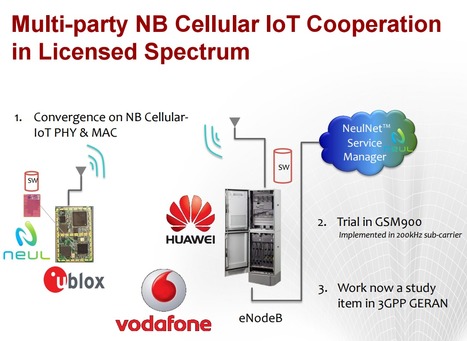VODAFONE, Huawei and u-blox have been working on a more efficient, mobile Internet of Things connectivity technology in Spain and in a recent statement by the group has revealed that their new technology is ready and has undergone successful trials.
The commercial trial of pre-standard NB-IoT (Narrowband Internet of Things) technology promises to extend the Internet of Things (IoT) by making it more efficient to connect objects to the internet which are in areas hard to reach by mobile connectivity or that require a long battery life. NB-IoT promises to achieve up to 10 years’ battery life and deep indoor penetration.
NB-IoT is a Low Power Wide Area (LPWA) technology which will connect more objects to the Internet of Things. Of the different LPWA alternatives available, NB-IoT is available to be deployed over existing mobile networks.
During the trial, Vodafone and Huawei successfully integrated the technology onto the operator’s existing mobile network in Spain and then sent the first pre-standard NB-IoT message to a u-blox module in a water meter.
The improved penetration and low power requirements make it possible to connect devices using NB-IoT simply and efficiently using an established mobile network.
NB-IoT is viewed by the industry as having application for enterprises in a range of different areas, from utility meters to sensor monitoring to asset-tracking.
The pre-NB IoT commercial technology trial used Huawei’s chipset and software and was the first of its kind to successfully implement narrowband communications in cellular bands. The deployment of NB-IoT in licensed cellular spectrum means it is secure and less susceptible to interference and can provide a better guarantee of service.
Further trials and proof of concept deployments are planned by the companies.

